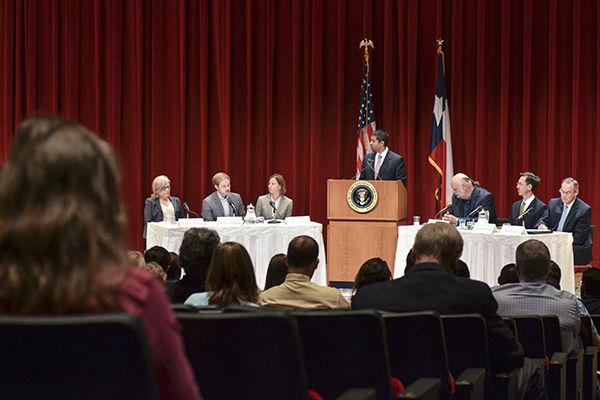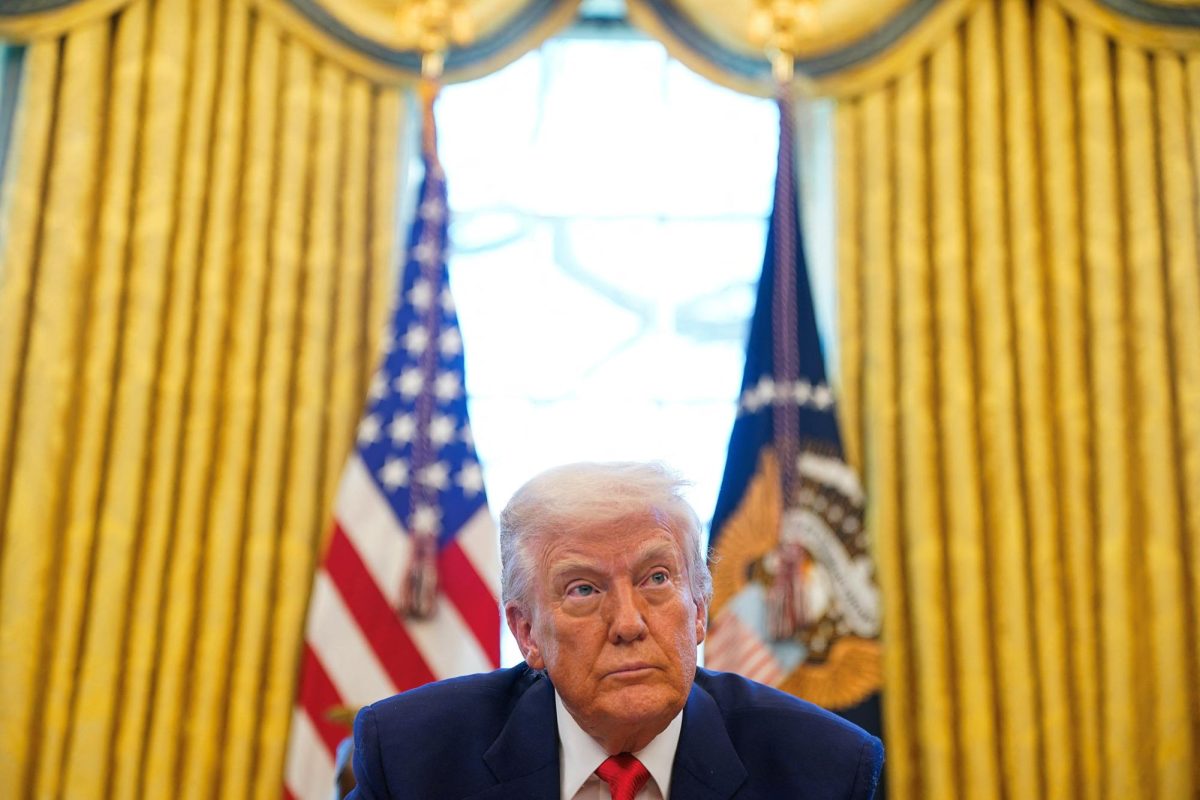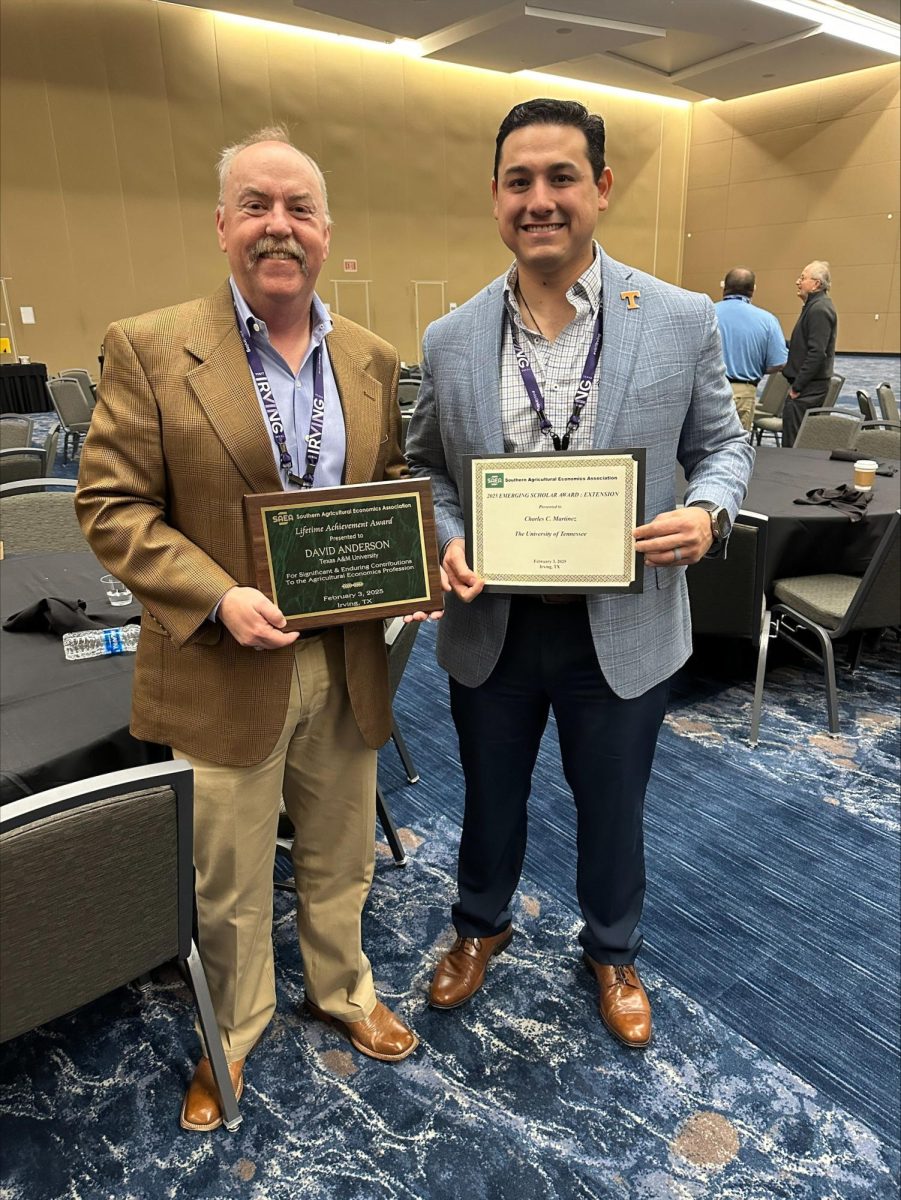Seeking further transparency of the Federal Communication Commission, Commissioner Ajit Pai led a forum Tuesday about Internet regulation.
The FCC is the governmental agency that regulates media communications, from wire to satellite. Pai said there are a large number of approaches the FCC has to examine when approaching regulatory policy.
“Someone suggested that the FCC should classify broadband service as a telecommunications service and subject Internet service providers to public utility regulation, otherwise known as Title II,” Pai said. “Others have said that we should pursue other regulatory avenues. Others have said that rules would be a solution in search of a problem. And still others have said that if there is a problem here to solve we should first go back to congress for guidance.”
The forum included a panel of speakers from across the state to share on different opinions about Internet regulation and its need.
The discussion for regulation centered on the “last mile,” which is the physical infrastructure connecting individual households to the Internet. Chelsame McCullough, executive director for Texans for Economic Progress, said the Internet regulation is similar to improving traffic conditions on a highway.
“To me I just think of it in terms as a very simple analogy specifically related to the last mile, is if the last mile is the exit and everything else is the grand highway,” McCullough said. “Well, then there is still congestion at that last point that slows everything down and what I really want to do is get the ramp going.”
Title II is a part of the Communication Act of 1934. If more strongly implemented, various providers would all use the same cable, like multiple trains running along the same track.
Edward Henigin, chief technology officer of Data Foundry Inc., said forcing multiple companies to build their own tracks, which are fundamentally identical, is inefficient and a waste of capital. Along with this, he said he saw the priority issue not in regulation itself, but in access to the Internet .
“I want to distinguish between the Internet — the big global Internet, compared to the way we access the Internet — and distinguish that the Internet doesn’t need any regulation, it’s doing just fine,” Henigin said. “But the last-mile access, the on-ramp, your individual on-ramp, is where all the problems are and that’s where we need to focus our intention.”
Henigin said Title II is the solution to improving access to the Internet.
“We endorse a policy of classifying last-mile, layer-one networks — not the Internet — under Title II, imposing common carriage access requirements along those networks, in order to create markets, which we love, for Internet access, minimize the regulatory complexity and best align service provider and consumer priorities,” Henigin said.
Joe Portman, president of Alamo Broadband Inc., said he had a different perspective. He said additional regulation would be harmful to competition, especially small businesses and entrepreneurs.
“In summary, if it ain’t broke, don’t fix it,” Portman said. “The Internet has experienced mass growth since the light touch regulatory approach was adopted in 2010 and absent any landmark changes it will continue to do so. Title II and the more onerous and costly regulations will work against the goal of encouraging broadband deployment to all Americans.”
Pai said the panel was important to help facilitate the views of individuals and businesses, which are critical to policy making.
“The danger of regulating in a vacuum is we don’t consider the broader impact that our regulations might have on Americans across the country who are relying on 21st-century networks,” Pai said. “And I think this was a good step in the right direction for getting feedback from the American public and hearing from folks across the spectrum on the issue that you saw on the stage. I think it bodes well for what the FCC might do.”
Donna Nelson, chairman for the Public Utility Commission of Texas, said regulation would need to be specific and implemented carefully.
“Regulation needs to be predictable, even-handed and limited to accomplished defined goals,” Nelson said. “We cannot decide the fact that regulation is a substitute for competitive markets. Unnecessary regulation impedes competition by increasing costs, erect barriers to entry and ultimately limiting customer choice or driving up the cost of goods and services.”
McCullough said it is important to identify the exact issue that is being addressed by the regulations.
“We want to make sure that as the tech community becomes more engaged we really clear up the issues and talk about what is truly the issue here,” McCullough said. “We are not wanting this to be hijacked by misguided arguments of a small minority. This isn’t about fast lanes and slow lanes, the Internet is working and it’s working well.”
Pai said he believed the panel was a success and was pleased with the turnout and the ability to converse with individuals outside of Washington on the issue.
“I think the passion you saw on the stage and in the audience really illustrates it is such an important issue to so many people, as I mentioned in my opening remarks, broadband really is inextricably intertwined in so many aspects of American life and that means Americans have a great stake in what the FCC does on net neutrality,” Pai said.
FCC Commissioner Ajit Pai led a forum at the Annenberg Presidential Conference Center on Tuesday regarding the debate over net neutrality.
Photo by John Sheen.
Federal communications commissioner and panel address hot-topic Internet issues
October 21, 2014

0
Donate to The Battalion
$2790
$5000
Contributed
Our Goal
Your donation will support the student journalists of Texas A&M University - College Station. Your contribution will allow us to purchase equipment and cover our annual website hosting costs, in addition to paying freelance staffers for their work, travel costs for coverage and more!
More to Discover









